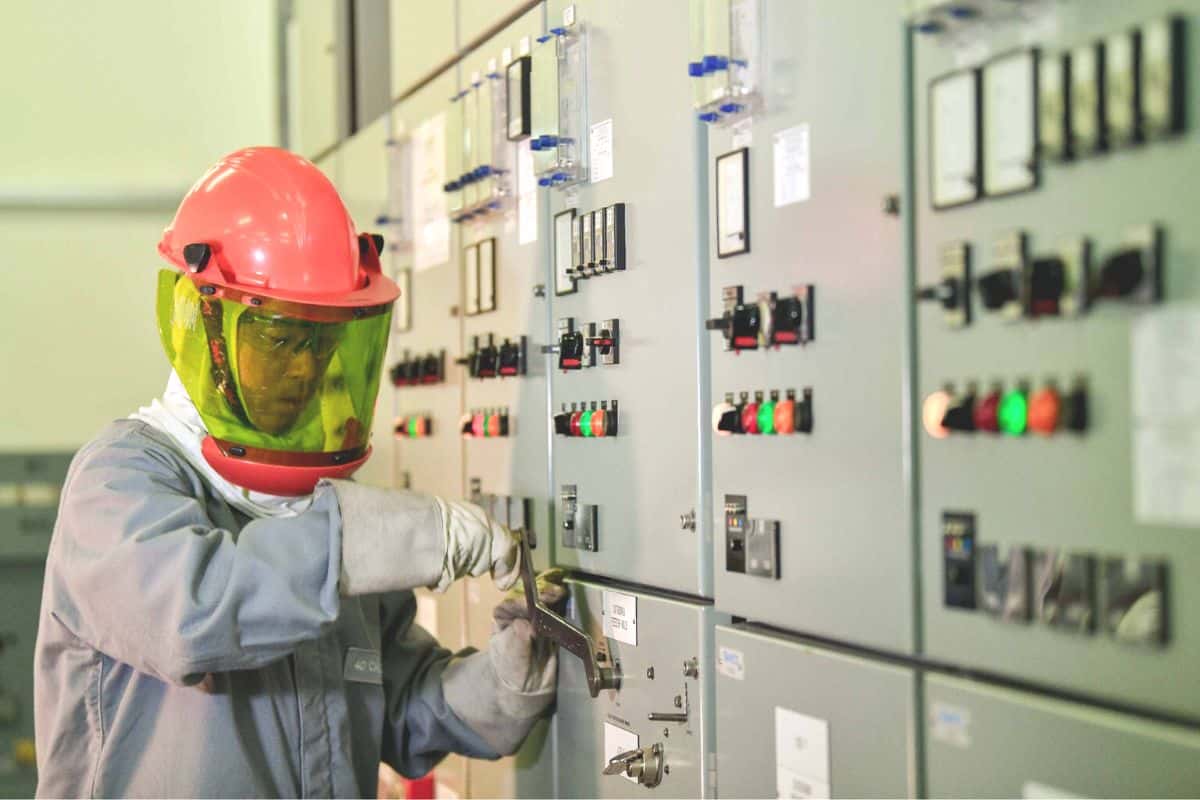A chargeman in Malaysia is a skilled electrical technician responsible for maintaining and operating electrical systems in buildings, factories, and other facilities. This role requires specialized knowledge of electrical installations and safety procedures.
Chargemen in Malaysia earn between RM2,500 and RM5,000 per month, depending on their experience and qualifications. Their primary duties include inspecting electrical systems, troubleshooting issues, performing maintenance and repairs, ensuring compliance with safety regulations, and supervising junior electricians. Chargemen also prevent electrical accidents and maintain electrical systems’ overall efficiency in various settings.
Chargeman Salary in Malaysia Per Month
Types of Chargeman in Malaysia
The types of chargeman in Malaysia are based on certification and ability to handle different voltage levels and specific work environments. The hierarchy includes Chargeman A0 for high-voltage systems above 33kV, Chargeman A4 for medium voltage between 650V and 33kV, Chargeman B0 for low voltage up to 650V, Chargeman B4 for systems up to 500V, and Chargeman BO-PW specializing in public works projects.
Chargeman A0
This is the highest level of Chargeman certification in Malaysia. Chargeman A0 manages and maintains high-voltage electrical systems, typically above 33kV. They are qualified to handle complex electrical installations in large industrial facilities, power plants, and electrical substations.
Chargeman A0 requires extensive experience and knowledge in electrical engineering. They often take on leadership roles in electrical safety management and are involved in the planning and executing of major electrical projects.
Chargeman A4
Chargeman A4 is certified to handle medium-voltage systems, typically between 650V and 33kV. These systems are commonly found in manufacturing plants, large commercial buildings, and medium-sized industrial facilities.
These professionals operate, maintain, and troubleshoot medium-voltage electrical systems. They play a crucial role in ensuring the reliability and safety of electrical installations in their respective facilities.
Chargeman B0
Chargeman B0 is qualified to work on low-voltage systems up to 650V. They are typically employed in smaller industrial settings, commercial buildings, and residential complexes.
Their responsibilities include installing, maintaining, and repairing low-voltage electrical systems and ensuring compliance with safety standards and regulations for electrical installations in their designated areas.
Chargeman B4
Chargeman B4 is certified to handle low-voltage systems up to 500V. They often work in small—to medium-sized commercial buildings, factories, and residential areas.
These professionals are responsible for the day-to-day operation and maintenance of low-voltage electrical systems. They conduct regular inspections, perform minor repairs, and ensure the safe operation of electrical equipment within their scope.
Chargeman BO-PW
Chargeman BO-PW (Public Works) is a specialized certification for electrical professionals working on government and public-sector projects. It qualifies them to handle electrical systems in public buildings and infrastructure.
Their responsibilities include overseeing electrical installations in government projects, ensuring compliance with public works standards, and maintaining electrical systems in public facilities. They play a crucial role in the safety and reliability of electrical systems in public spaces.
How Much Does Chargeman Earn in Malaysia?
The salaries for chargemen in Malaysia depend on the certificate, their experience level, and their employer. Chargeman AO, responsible for low-voltage systems without aerial lines, typically earns around RM2,500 to RM3,500. Meanwhile, Chargeman A1, handling low-voltage systems without power stations, usually earns between RM2,800 and RM4,000.
Chargeman A4-1 and A4-2, who are responsible for medium-voltage systems, generally earn between RM3,200 and RM5,000. Chargeman A4, with more advanced responsibilities, typically earns between RM3,800 and RM5,500.
Chargeman B0-1 and B0-2 (11KV) receive salaries of around RM5,000 to RM6,000, while Chargeman BO (11KV) earns within the range of RM5,500 to RM6,500. Chargemen B0-1 and B0-2 (33KV) have salaries between RM 5,800 and RM7,000. Chargeman B0 (33KV) with extensive experience can earn up to RM6,800 or more, depending on their level of responsibility and expertise.
Is chargeman in high demand in Malaysia?
Yes, the demand for skilled professionals in the electrical and power industry, such as chargemen, is high in Malaysia. However, the market may vary depending on the region, industry, and economic conditions.
Is chargeman a promising career in Malaysia?
Yes, being a chargeman in Malaysia is a good career choice as it is highly skilled and in demand. With the increasing demand for electricity and the growth of industries in Malaysia, the job outlook for chargemen is expected to be positive.
How can I become a chargeman in Malaysia?
To become a chargeman in Malaysia, you must obtain your SPM certificate or equivalent qualification. Then, enrol in a chargeman course at a recognised training centre approved by the Energy Commission (Suruhanjaya Tenaga). These courses typically take about six months to complete. After finishing the course, you’ll need to gain practical experience by working under a licensed chargeman for at least 2 years.
Once you’ve met these requirements, apply for the Chargeman Certificate of Competency from the Energy Commission. You’ll need to pass both written and practical exams to get certified. There are different classes of chargeman certificates, so choose the one that fits your career goals. Renew your certificate every three years to stay current in the field.
Disclaimer:
This guide is provided as-is and may not represent the most up-to-date information or requirements to become a chargeman.
It’s always recommended to seek advice from experts in the field and refer to reputable sources for the latest information.
We are not responsible for damages or decisions made based on the information provided in this guide.


Really a good sharing